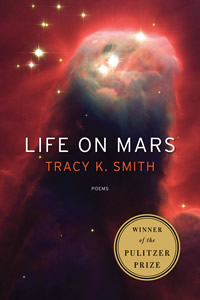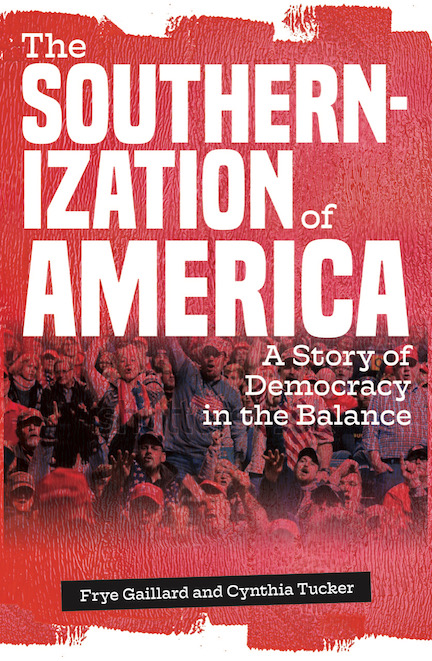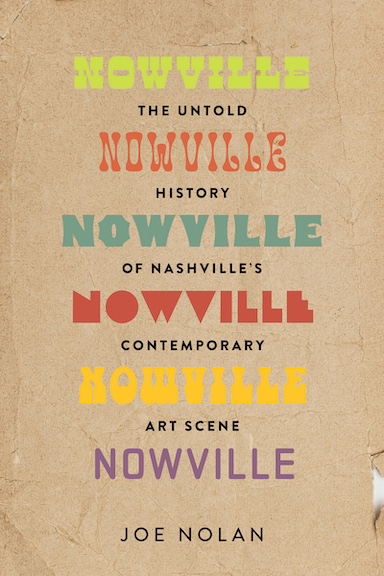Is There Life On Mars?
U.S. Poet Laureate Tracy K. Smith talks about inspiration, personal reflection, and recitation
To contemplate the afterlife, the vastness of the universe, and one’s place in the world might seem like a pointless exercise: given the limited breadth of human understanding, what can we really know of such matters? When Tracy K. Smith was writing the poems that would eventually become her Pulitzer Prize-winning collection, Life On Mars, the answers, or at least some kind of fulfillment, could be found in the contemplation itself. Dedicated to the memory of Smith’s late father, Life On Mars tackles matters of life and death on a grand scale and reflects upon one human being’s place in so massive a universe.
Chapter 16: Life On Mars is in many ways a very personal reflection on the loss of your father. Poems don’t often get the kind of national media attention that’s focused on Pulitzer Prize-winning collections; what went through your mind when you realized such intensely personal work was being discussed by the masses?
Tracy K. Smith: The most intensely personal part of the process for me comes while I’m writing a poem. That’s when I need to feel fearless and un-self-conscious. But by the time I decide to publish a poem—which is to say, by the time the poem has taught or revealed to me whatever it has to offer—I’m already ready to relinquish that kind of intimacy with it. The fact that this collection has gotten wider attention than it might otherwise have received actually makes me feel grateful, as if my private tribute to my father has become something shared.
 Chapter 16: Aside from matters of form, to what extent is poetry—especially personal, reflective poetry—different from other kinds of introspective writing?
Chapter 16: Aside from matters of form, to what extent is poetry—especially personal, reflective poetry—different from other kinds of introspective writing?
Smith: Whatever its material, a poem seeks to explore something closely and with a certain degree of complexity. I imagine that is also the aim with a great deal of prose. But the formal aspects of a poem push for compression and a different kind of pressure upon language and image. Like Robert Bly describes in his wonderful book Leaping Poetry, I like to think that a poem is comfortable moving from the conscious material of the poem—its themes or subjects—to its unconscious material, which often exists in the psychic or emotional realm, rather quickly and associatively without the need to decode or translate that movement into the language of logic. A poem is visceral and intuitive, even when it is exploring ideas that can be tracked or parsed with the intellect.
Chapter 16: As a teacher, what’s the most crucial insight you hope to impart to your students?
Smith: That idea that the poem is free to leap—the way ideas flash and dart in the mind—is something that seems to really unlock something for my students. I also push them to read in such a way that any poem can be instructive for them, an invitation to try something new in their own writing.
Chapter 16: When selecting the poems for Life On Mars, what criteria did you use?
Smith: Most of the poems in that collection were written in the same span of time, and so they are characterized by similar questions, obsessions—a similar overarching theme. They naturally seemed to belong together for that reason. But when I group a collection, I’m always looking to see what the poems seem to be saying to one another, what larger themes emerge from considering the poems as a group. Certain poems didn’t make the cut because they seemed redundant, or perhaps because they seemed to belong to a different kind of conversation.
Chapter 16: A review of Life On Mars in The New York Times made this claim: “Smith’s desire to write about injustice is commendable, but her approach can be haphazard.” Given how personal these poems are, what’s your response to such observations?
 Smith: Again, the fact that a poem might be personal doesn’t really exempt it from scrutiny or criticism. I think the critic is entitled to his opinion. In those larger poems that are concerned with news events and the idea of injustice, what he interprets as haphazard is something I see as expansive—the poems are seeking to parse an array of events and to ask: “What questions or urges emerge as the result of considering these events together?” I’m grateful for what those poems urged me to grapple with, and I hope that some of that grappling is worthwhile for readers.
Smith: Again, the fact that a poem might be personal doesn’t really exempt it from scrutiny or criticism. I think the critic is entitled to his opinion. In those larger poems that are concerned with news events and the idea of injustice, what he interprets as haphazard is something I see as expansive—the poems are seeking to parse an array of events and to ask: “What questions or urges emerge as the result of considering these events together?” I’m grateful for what those poems urged me to grapple with, and I hope that some of that grappling is worthwhile for readers.
Chapter 16: David Bowie’s song “Life On Mars?” is in many ways thematically similar to your collection of the same title—an exploration from afar of a mysterious new realm. In your case, that realm is something like the universe or the afterlife. In Bowie’s case, it’s America. Is this similarity purely a coincidence?
Smith: Not at all. I love the lens through which the spectacle of America is viewed in that song. In some ways, I’m thinking most directly about the song when I am contemplating America in the book, though I also like the fact that it also seemed to comfortably include the more science and sci-fi themed poems.
Chapter 16: In Life On Mars, there is a challenging interplay between the vastness of the universe and the particularities of the personal world. How does your poetry, or perhaps poetry as a whole, help a reader cope with this kind of sweeping back and forth?
Smith: Well, things become clearer when we can find a small point of contact to explore, when we can find out how to draw the remote or the distant into our own private realm. That’s the work of metaphor, really. And I think that on a very basic level, that’s really all I’m trying to do in the book: to look at a little piece of this unknowable whole and see if, in some way, it can begin to make sense.
[This article appeared originally on February 12, 2013. It has been updated to reflect new event information.]




